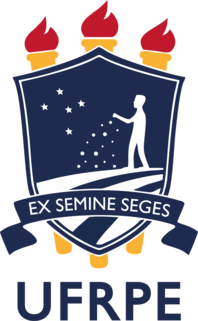Professors of PPGZ/UFRPE, graduate students, and postdoctoral fellows participate in various actions of social impact through lectures, short duration courses, organization of scientific events, and production of teaching materials related to animal science with a view to the dissemination of technologies to technicians, professors, students, and producers.
Technology transfer also occurs through the edition book and books chapters with the participation of professors, graduate students, and postdoctoral fellows from the PPGZ, as well as foreign researchers. Most books and book chapters published at the national and international level include data from thesis and dissertations of PPGZ or PDIZ.
The most recent book publication occurred in 2020, titled "Forage cactus: potential and perspectives", which brings together many of the results of dozens of PPGZ and PDIZ dissertations and theses. It is important to mention that since the beginning of the PPGZ, several professors have been studying forage cactus as a strategic forage option for semiarid regions. The selection of highly productive and cochineal-resistant forage cactus varieties, fertilization, intercropping, as well as the evaluation of the use of forage cactus, especially for feeding dairy cattle, goats, and sheep, are the focus of many research projects of the PPGZ. The results obtained from those projects are considered and widely used by producers of Northeast and other regions.
Extension projects are conducted involving the non-academic community and producers. Some extension courses provided by professors from PPGZ include dairy processing, hygienic milking process from goats and cows, feed characteristics, hay and silage production, etc.
The events promoted by the PPGZ/UFRPE show the social importance of the program, as well as contribute to science development, supporting the training of high-profile professionals in animal science to meet society and market demand.
Professors, researchers, extension agents, consultants, and producers recognize the PPGZ due to various technical and scientific knowledge on aspects of animal production management. Additionally, many former graduate students work for the development of animal science in the national scenario and abroad, as the PPGZ receives students from different countries worldwide.
Technologies developed through applied research have been effectively used on the production systems, contributing to increasing the income of milk, meat, and egg producers. The technical knowledge generated is key to the sustainable development of animal production systems in the Northeast region, as well as for other parts of Brazil and the world. Professors from PPGZ have been developing partnerships with private companies (mainly related to animal nutrition), which have been funding part of research and the generation of new scientific knowledge.
The PPGZ solidarity with other graduate programs and institutions started in 2002 when together with Soil Graduate Program (UFRPE) opened an opportunity for 20 professors from three Federal Agrotechnical Schools, currently Federal Institutes (IF), for qualification at master’s level. Years later, some of the previously trained professors returned for the doctorate program, which contributed to improving the qualification of the IF’s faculty, as well as of the undergraduate courses offered.
In the beginning, the Animal Science Graduate Program at the Federal University of the São Francisco Valley (UNIVASF) was supported by the PPGZ. Recently (2017-2020), the PPGZ also supported the Animal Science Graduate Program at the Federal University of Sergipe. The PPGZ collaborated to merge the Animal Science and Fishers Resources Graduate Programs at the Federal University of Amazonas. Additionally, a professor from PPGZ contributed as a Senior National Visiting Professor in the Animal Science and Pastures Graduate Program (PPGCAP) at the Federal University of the Agreste of Pernambuco (UFAPE), contributing to the improvement of PPGCAP.
The PPGZ coordinated the participation of eight graduate programs in the CAPES-FACEPE Call - Biomes, which approved 18 master's, 18 doctoral scholarships, and two postdoc scholarships. This initiative which involves programs with different levels of consolidation, from four institutions (UFRPE, UFAPE, UNIVASF, and UPE) will contribute to the development of applied research related to the caatinga biome.
The admission of foreign students from underdeveloped countries with scholarships from the Organization of American States (OAS), Organization for Women in Science for the Developing World (OWSD) of the origin country, as in the case of Mozambique, or from the program constitute an act of solidarity through the training of high-profile human resources to work in the area of animal science in their countries of origin.

